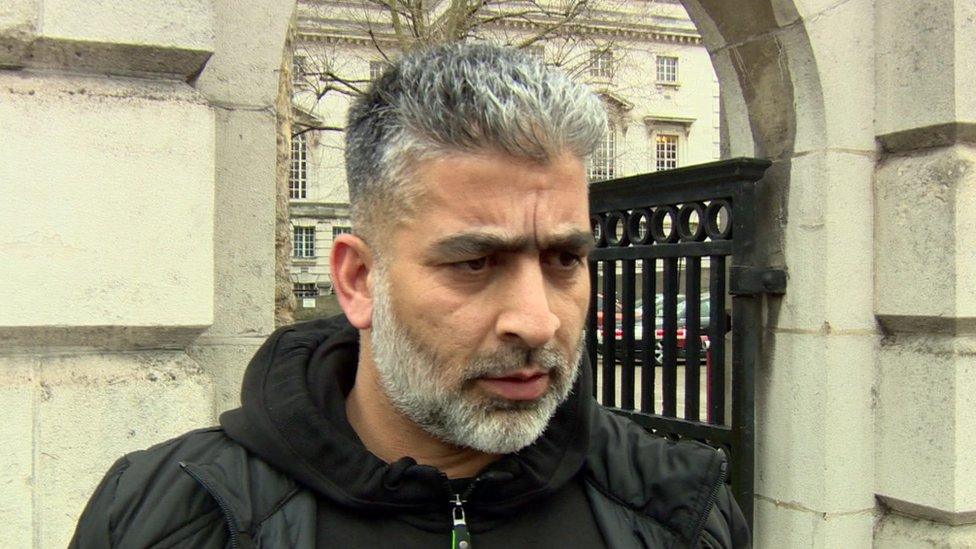Blac Chyna called out for skin-lightening cream
- Published
Blac Chyna is being criticised for selling a skin-lightening cream in Nigeria.
The model's new product, in partnership with a brand called Whitenicious, was announced on Instagram.
The Whitenicious x Blac Chyna Collection is described as an "illuminating and brightening cream" that "lightens without bleaching skin out".
Some skin lightening products are banned in the UK.
Allow Instagram content?
This article contains content provided by Instagram. We ask for your permission before anything is loaded, as they may be using cookies and other technologies. You may want to read Meta’s Instagram cookie policy, external and privacy policy, external before accepting. To view this content choose ‘accept and continue’.

The founder of Whitenicious, which is not banned in the UK, is Cameroonian pop star Denecia.
There has been controversy around her brand since it launched in 2014.
In an interview with Ebony, external at the time, she was quoted as saying: "Will Whitenicious bleach your skin if you use it on all your skin? Yes, it will. Are we selling Whitenicous for that purpose? No, we're not."
The company says its cream is meant to be used for conditions like hyperpigmentation, when people have dark spots on their skin.
But that hasn't stopped a backlash against Blac Chyna, who rose to fame stripping and modelling, before launching a make-up brand and having a child with Rob Kardashian.
Allow Instagram content?
This article contains content provided by Instagram. We ask for your permission before anything is loaded, as they may be using cookies and other technologies. You may want to read Meta’s Instagram cookie policy, external and privacy policy, external before accepting. To view this content choose ‘accept and continue’.

Despite some people using skin-lightening products as a cosmetic procedure to change the appearance of blemishes like birth marks, they have a bad reputation the world over due to the harmful ingredients that some can contain.
The NHS says that "powerful skin-lightening creams" can be prescribed by a doctor, usually containing hydroquinone and/or corticosteroids, a steroid medication.
But products containing those ingredients which haven't been prescribed by a medical professional are banned in the UK.
In a separate case, a UK man was jailed for selling toxic skin-lightening products earlier this year, the first time that's happened.
Blac Chyna's product doesn't contain any of those ingredients, but she's been accused of "exploiting" Nigeria's colourism problem.
Colourism is prejudice against people who have a darker skin tone, and/or the preferential treatment of those who are of the same race but lighter-skinned.
Many skin-lightening products are not banned in Nigeria, where 77% of women are reported to use some form of them on a regular basis according to the World Health Organisation, external.
Dr Harvey Olufunmilayo is a Nigerian doctor training in Britain as an NHS GP, who says he's seen first-hand how some skin-bleaching products "can be harmful to the kidneys, how they can be harmful to the liver... how they can make it difficult for wounds to heal because the skin is too thin, too fragile".
"If their kidneys get ruined, they don't get free healthcare like we do in the UK.
"The UN has declared Nigeria to be the poverty capital of the world, with the highest number of poor people in the world. We shouldn't really be encouraging that kind of thing."
Allow X content?
This article contains content provided by X. We ask for your permission before anything is loaded, as they may be using cookies and other technologies. You may want to read X’s cookie policy, external and privacy policy, external before accepting. To view this content choose ‘accept and continue’.

Basetsana lives in South Africa and supports people deciding for themselves whether to lighten their skin.
She says that Blac Chyna's cream, which costs $250 (£195), is being sold to people who are "more well-informed than somebody who is buying it off of the black market".
"If you feel like you want to be lighter, what if that's what you really want and it's got nothing to do with self-loathing?" she asks.
Basetsana stressed that as someone who's lighter-skinned, she's talking from a place of "privilege".
But she questioned whether there was a double standard.
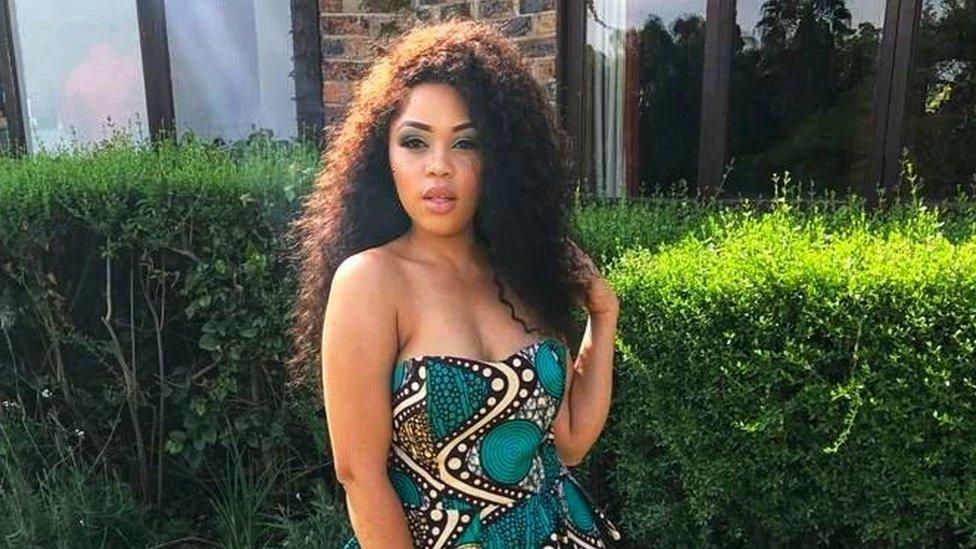
Basetsana questioned whether skin-lightening products are any different to other cosmetic procedures
"There are people who are like, 'No, the Kardashian's are not appropriating our culture'. She's braiding her hair, she's tanning herself to death and guess what? People love it. So what's so different about it with Blac Chyna?"
Stephanie is 21 and lives in Lagos, the most populated city in Nigeria.
She says that there was pressure on her friends to bleach their skin during secondary school.
"People were always like 'Oh, if you are dark-skinned then you are Coke, if you are light-skinned then you are Fanta', and a lot of people wanted to become Fanta - so they bleached their skin."
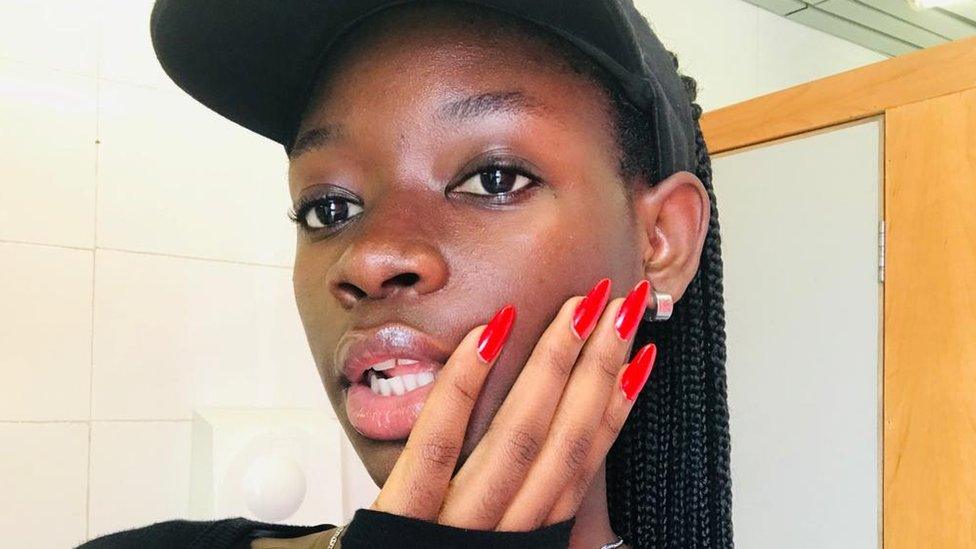
Stephanie thinks Blac Chyna should stay away
But she says that Nigerians are trying to "push towards self-love" and "embrace the melanin and blackness that comes with being African".
"So I don't think Blac Chyna should come to Africa to launch her product."
Blac Chyna disabled comments on her Instagram post but that hasn't stopped people writing on her other pictures.
"Bye White Chyna," one person wrote.
People have been critical of the model's latest business venture elsewhere as well.
Allow X content?
This article contains content provided by X. We ask for your permission before anything is loaded, as they may be using cookies and other technologies. You may want to read X’s cookie policy, external and privacy policy, external before accepting. To view this content choose ‘accept and continue’.
Allow X content?
This article contains content provided by X. We ask for your permission before anything is loaded, as they may be using cookies and other technologies. You may want to read X’s cookie policy, external and privacy policy, external before accepting. To view this content choose ‘accept and continue’.

Newsbeat has contacted representatives of Blac Chyna but hasn't yet received a response.
Follow Newsbeat on Instagram, external, Facebook, external and Twitter, external.
Listen to Newsbeat live at 12:45 and 17:45 every weekday on BBC Radio 1 and 1Xtra - if you miss us you can listen back here.
- Published6 August 2018
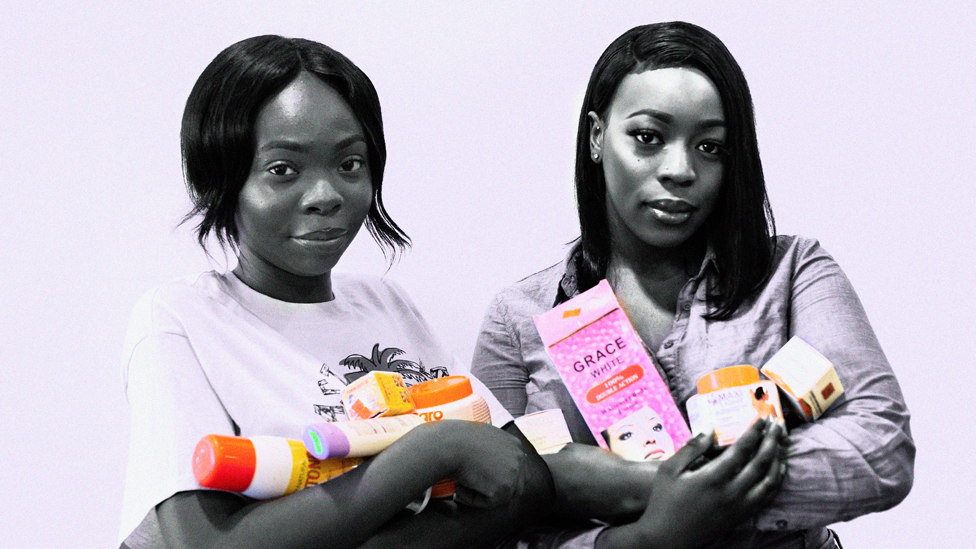
- Published21 August 2018
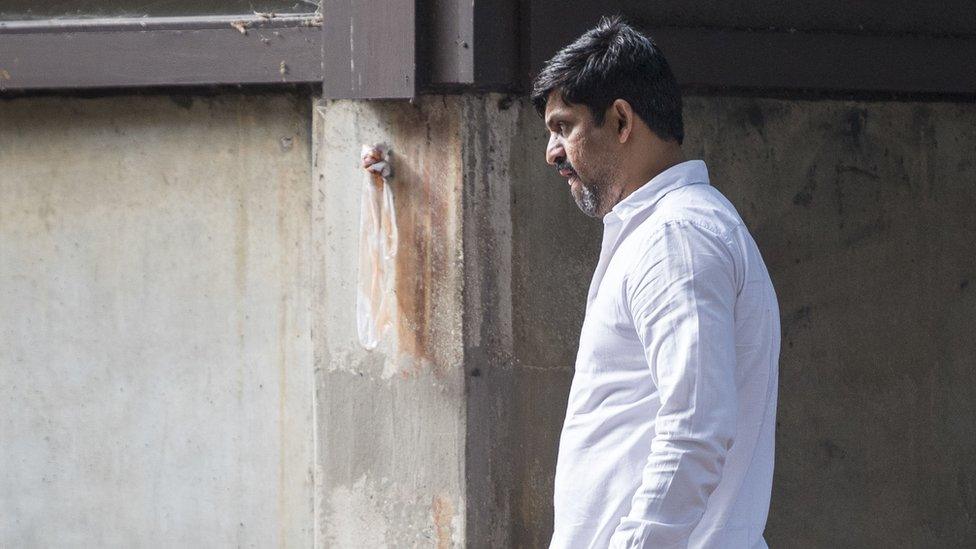
- Published6 August 2018
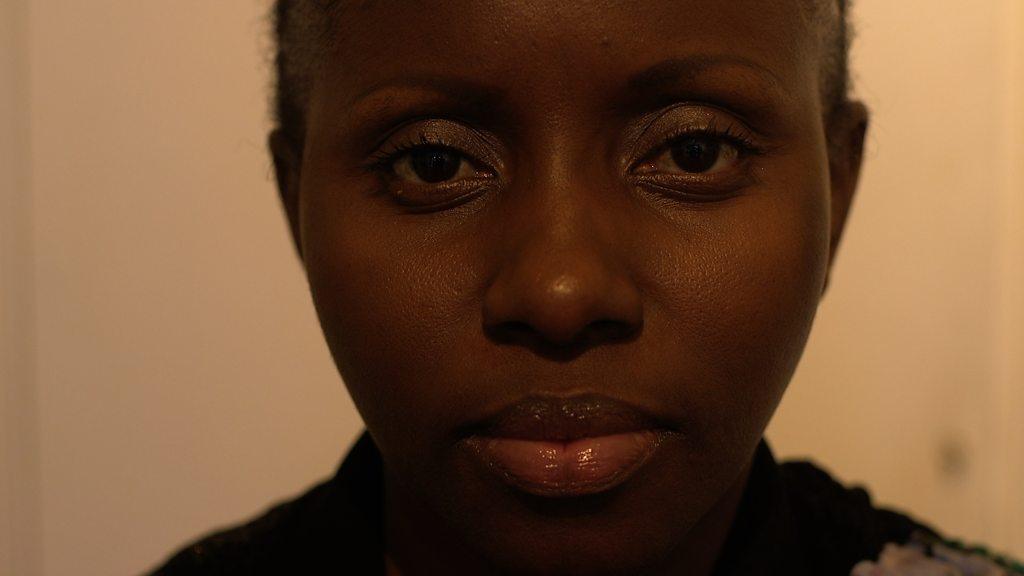
- Published6 August 2018
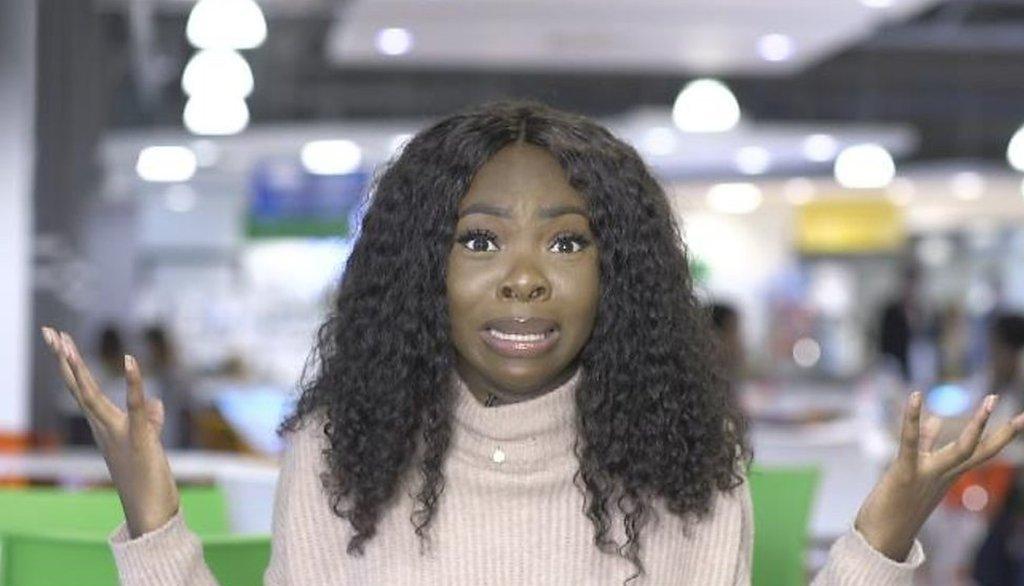
- Published6 August 2018
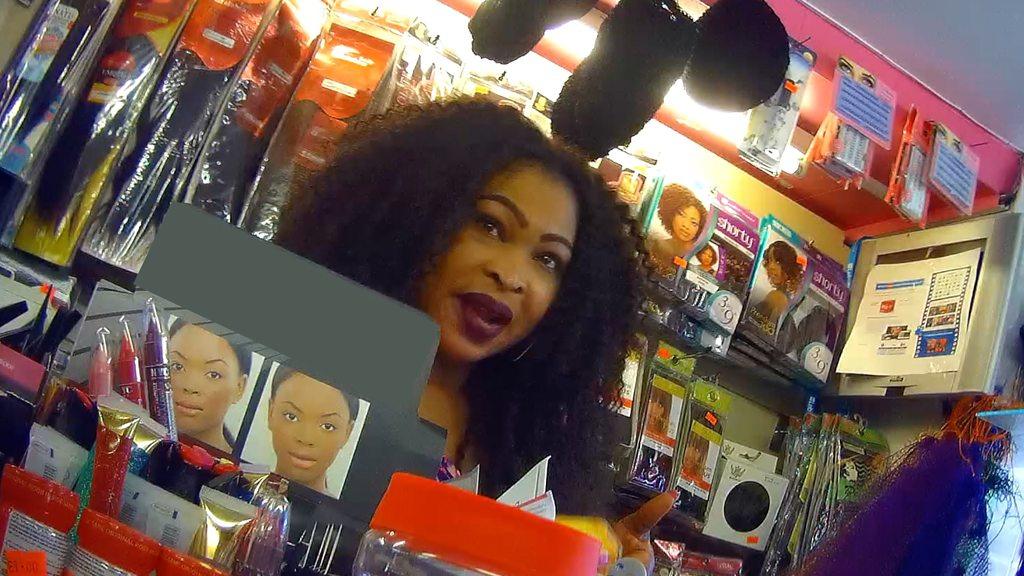
- Published8 February 2018
